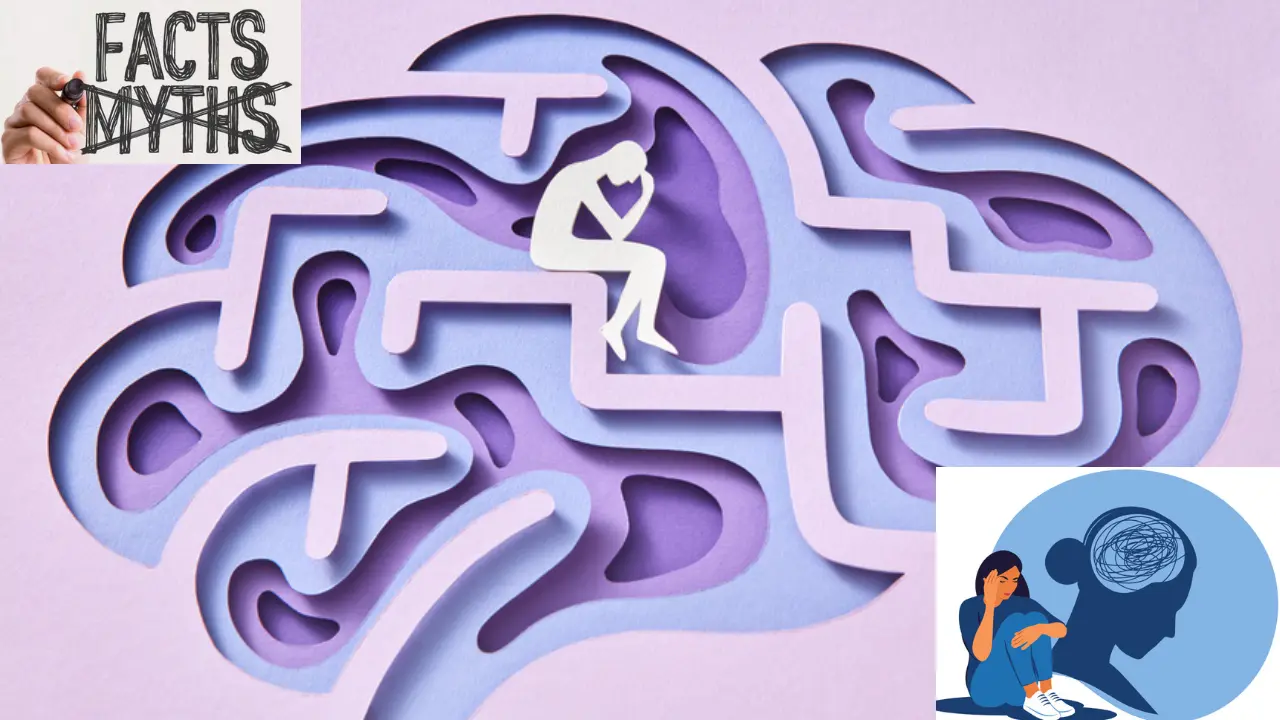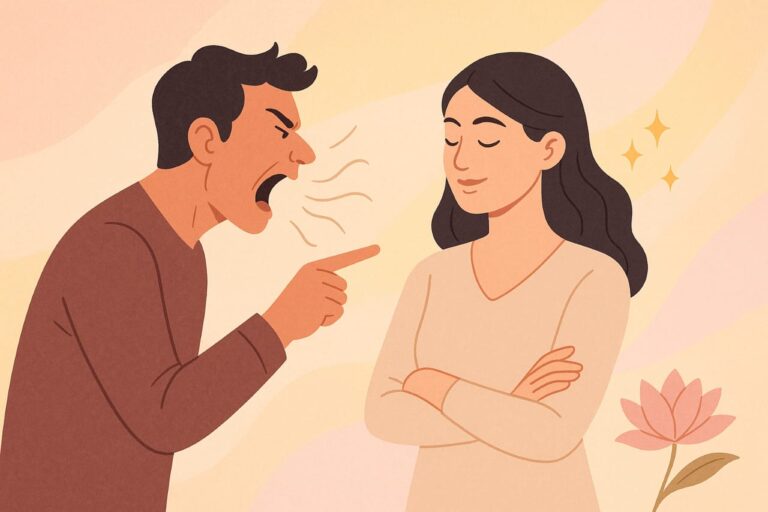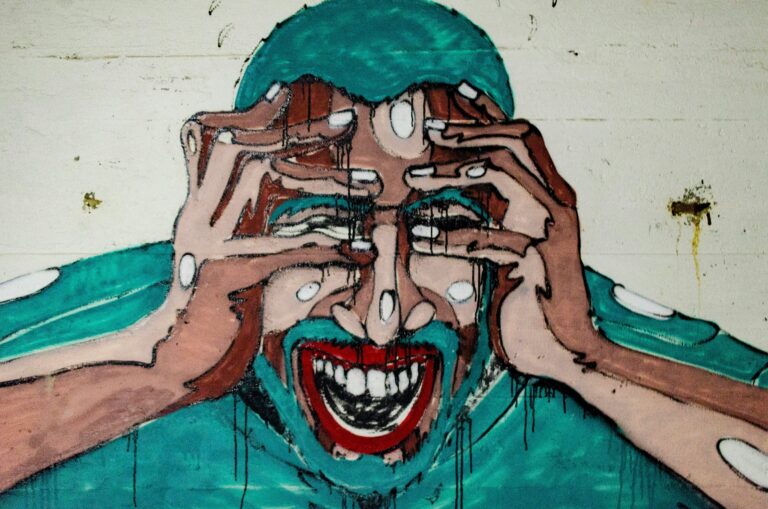Misconceptions about Mental Health
Breaking Stereotypes: Mental Health Myths you should Immediately stop Believing
Mental health is something which is equally important as physical health, even though we often misunderstood this Mental Health because of numerous myths surrounded by it. These false beliefs often create hindrance and confusion among people and as a result all these misconceptions are preventing us to ask for a help when they actually feel like. These Misconceptions about mental health are enough to make a individuals feel ashamed, hesitant, or even fearful of reaching out for Help and support which they needed at that time. This stigma stops people from getting therapy or medication and makes it harder for them to take care of their mental health.
So in this web post we will dive deep into all the aspects and go through deeply about the misconceptions and understanding all the aspects of mental health which is essential for us to know to break the stigma which surrounds ourselves.
By truly understand the reality of mental health and therapy we can overcome from the situation and its medications. we can create a more accepting and supportive environment. Let’s dive deep into some common myths and misconceptions about mental health. Lets find out the actual facts that can help promote awareness, understanding, and compassion.
Myth 1: Mental Health Issues Are Rare
Reality: Mental health challenges are very common and completely normal. There’s nothing to be ashamed of if someone is facing some issues regarding mental health. On the Other Hand, According to the World Health Organization, reports claims that nearly 1 in 8 people around the world are living with a mental health condition, and which is very common. Conditions like anxiety, stress, and depression can be seen in any group of person—they affect people of all ages, backgrounds, and lifestyles. These challenges are part of life for many individuals, and it’s important to recognize that mental health struggles are not unusual or something to hide. but the concern to look over and cure immediately when find out.
Myth 2: Seeking Therapy Means You’re Weak
Reality: Reaching out for therapy is actually a sign of strength, not weakness. It means you’re taking control of your mental health and willing to work on that, it means you are ready to make an effort to improve your well-being. Just like you would go to a doctor when you’re physically unwell or harmed, just like that seeing a therapist is about taking care of your mind and emotions. moving forward and asked for the help to talk about mental health illness is enough to prove that you are responsible for your health and willing to take positive steps to feel better. Seeking help isn’t a weakness; it’s a courageous decision to prioritize your mental well-being.
Myth 3: Therapy Is Only for People With Severe Problems
Therapy is not just for people who are severely affected or struggling; it is a valuable tool that anyone can use to improve their life. By engaging in therapy, we become stronger both physically and mentally. Moreover, it also helps in strengthening our relationships. Therapy is beneficial in all aspects of life, whether you’re facing challenges in your career, experiencing business losses, or dealing with stress in personal relationships. It serves as an essential resource for enhancing mental well-being and overall life satisfaction. Seeking therapy doesn’t signify weakness; rather, it demonstrates a proactive approach to personal growth and emotional health. It is a powerful way to navigate the complexities of life and foster resilience, balance, and deeper connections with others.
Myth 4: Medications Will Change Your PersonalityYour Attractive Heading
Reality: Many individuals believes that taking mental health medications will completely change who they are, but this is absolutely wrong. These medications are carefully designed to help restore balance in your brain’s chemistry when it’s disrupted, such as in cases of depression or anxiety. Their purpose is not to alter your personality or to make you someone else but its purpose is to reduce the symptoms that are making it hard for you to function.
When prescribed correctly by a professional, these medications can help you feel more clarity, stability, and manage your emotions better. They are tools to support you in living a more effective and fulfilling life. Rather than changing who you are, they work to bring you back to feeling like yourself again—free from the overwhelming challenges caused by mental health conditions.
Myth 5: Mental Health Issues Are a Sign of Weakness
Reality: Struggling with mental health challenges does not mean you are weak or flawed as an individual. These challenges are not about a lack of willpower or strength; they often arise from a mix of factors that are beyond a person’s control.
Mental health problems can be caused by many different things. For example, they can run in families because of genetics. They can also happen because of changes in the brain’s chemicals. The way a person handles emotions or deals with difficult experiences, like trauma, can also play a part. Stress from things like relationships, work, or life events can also make a difference
These are complex issues that have nothing to do with personal weakness. Experiencing mental health struggles is part of being human, and it’s important to remember that seeking help is a sign of strength, its not a weakness or failure. Recognizing the need for support and working toward better mental health shows resilience and courage.
Myth 6: Talking About Mental Health Will Make It Worse
Reality: Talking openly about mental health is a powerful way to break down the stigma and misunderstandings that revolves around it. When you share your feelings and experiences with someone you trust, such as a close friend, family member, or mental health professional, it can bring a sense of relief and comfort. Having these conversations allows others to understand what you’re going through and offer the support you may need. Ignoring mental health struggles, however, often leads to the problem growing bigger or becoming harder to manage over time. Addressing these issues through honest conversations can make a big difference in healing and recovery.
Myth 7: Children Don’t Experience Mental Health Issues
Reality: Mental health conditions has nothing to do with children or anything, it can affect anyone, including children too. Factors like family environment, trauma, and academic pressure, peer pressure can contribute to issues such as anxiety, depression, or bipolar disorder and behavioral challenges in kids. it is all misconception to say that children are too young to face mental health problems.
Several factors can contribute to these issues in children. For example, their family environment plays a big role—conflicts, neglect, or a lack of emotional support can impact a child’s mental well-being. Experiencing trauma, such as losing a loved one, witnessing violence, or facing abuse, can also have lasting effects on their mental health. Additionally, academic pressure, such as the stress to perform well in school or meet high expectations, can create feelings of fear, worry, or inadequacy in kids.
It’s important to understand that children may not always express their struggles clearly, but that doesn’t mean their challenges are any less then any adult. By recognizing that kids can face mental health issues, we can ensure they get the understanding and support they need to thrive.
Myth 8: Once You Start Medication, You’re on It for Life
There’s a common belief that if someone starts taking medication for mental health, they will need to continue it forever. This isn’t always true. Mental health medications are often used for a specific period to help stabilize symptoms and improve well-being. For many people, these medications are not meant to be permanent but are a temporary tool to assist in their recovery.
Under the guidance of a medical professional, individuals can often reduce their medication gradually once their symptoms are under control. The process is carefully managed to ensure it’s safe and effective. It’s also important to note that medications often work best when combined with other approaches like therapy, healthy lifestyle changes, and effective coping strategies. Together, these methods can address the root causes of mental health challenges and help people maintain their progress.
So, while medications can be a helpful part of the journey, they don’t always have to be a lifelong commitment. The goal is to support individuals in reaching a place of stability and balance, with or without continued medication.
Myth 9: Self-Care Can Solve Everything
Reality: Self-care is an important part of maintaining mental health, but it’s not always enough on its own to address more serious mental health conditions. Practices like exercising, eating well, meditating, or taking breaks can certainly help improve overall well-being and reduce stress. However, conditions like clinical depression, post-traumatic stress disorder (PTSD), or severe anxiety often go beyond what self-care alone can manage.
In such cases, professional help is crucial. Therapy, counseling, or medication might be needed to address the underlying causes of these conditions and provide effective relief. Self-care should be seen as one piece of a larger approach to mental health, complementing but not replacing professional treatments. Recognizing when you need additional support is a strength and an important step toward healing
Myth 10: People With Mental Illness Are Dangerous
Reality: The majority of people with mental health conditions are not violent. But this misconception is Widely spread. This belief is not only inaccurate but also deeply harmful. In fact, they are far more likely to be victims of violence or discrimination rather than perpetrators of harm.
This damaging stereotype fosters fear and stigma, making it harder for those with mental health conditions to seek help or feel accepted by society. It perpetuates a false narrative that isolates individuals who are already struggling, pushing them further away from support and understanding.
In reality, most people with mental health issues are just like anyone else—they live productive, peaceful lives and contribute positively to their families, workplaces, and communities. Recognizing this truth is essential to breaking down barriers, reducing stigma, and fostering a more inclusive and compassionate society.
Remember, mental health matters, and reaching out for support is a step toward healing and growth. Share this post to help others break free from these myths and embrace a healthier perspective on mental well-being.
Breaking the Stigma
Understanding mental health starts with clearing up these common myths and addressing these misconceptions. When we learn and share the facts, we can create a more supportive environment where people feel comfortable asking for help. Mental health is important, and reaching out for help is a brave and positive step toward feeling better and growing stronger.







